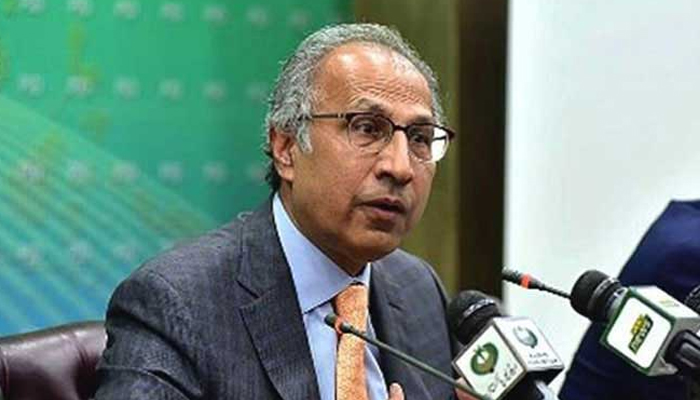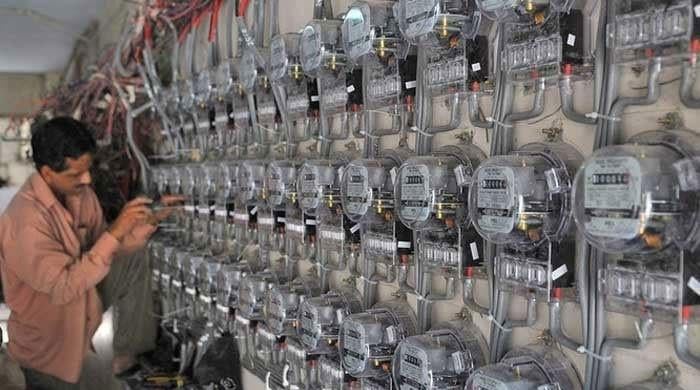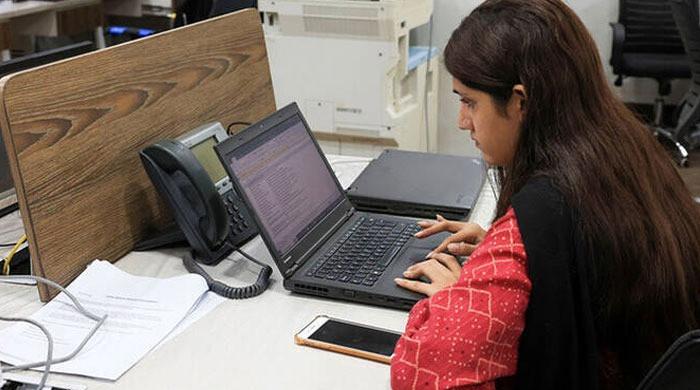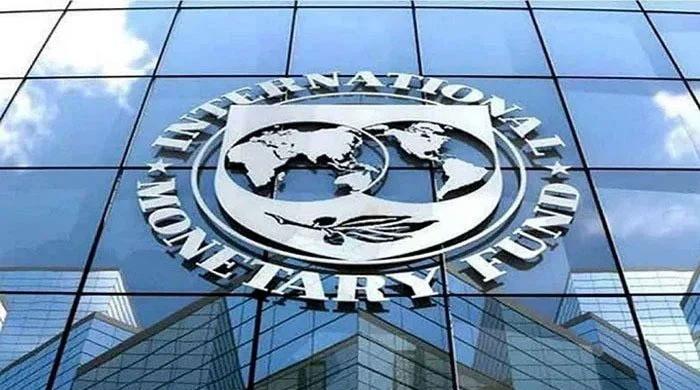Hafeez Shaikh says not allowing essential goods' prices to rise 'a challenge' for PTI govt
Reducing the taxes on imported goods is also "a challenge for us", Finance Minister Abdul Hafeez Shaikh adds
February 21, 2021

- Abdul Hafeez Shaikh says efforts not to allow essential goods' prices to rise was "a challenge" for the PTI government
- Govt subsidising the purchase of essential goods to "help the weaker middle class"
- Notes that a $20-billion external deficit has now been turned into a surplus
ISLAMABAD: Finance Minister Dr Abdul Hafeez Shaikh on Sunday said that controlling the prices of essential goods and not allowing them to rise was "a challenge" for the PTI government.
Speaking to journalists, Hafeez Shaikh added that reducing the taxes on imported goods, too, has been "a challenge for [the PTI government]" but that it still subsidised essential goods to "help the weaker middle class".
"When [Prime Minister] Imran Khan's government came into power, the fiscal deficit was $20 billion," he noted, adding that exports were next to none under the preceding leadership of the PML-N.
Read more: Democratic right of every individual, party to take part in Senate elections: Hafeez Sheikh
The finance minister mentioned that a $20-billion external deficit has now been turned into a surplus. The environment created due to the coronvairus pandemic also boosted Pakistan's exports, he added.
As the pandemic hit, the PTI regime introduced a policy to help the vulnerable groups in the country that were experiencing economic hardship through the Ehsaas Emergency Cash Programme, the budget of which, Sheikh said, was increased by the government from Rs100 billion to Rs200 billion.
"The prime minister's first priority is to stop the rise in prices," he underscored but noted that it had been "a challenge" for the PTI government.
Talking about the Senate elections, he said he wished for the polls to be transparent. "Political parties are contesting the Senate elections and the polls should not be made personal," he stressed.











